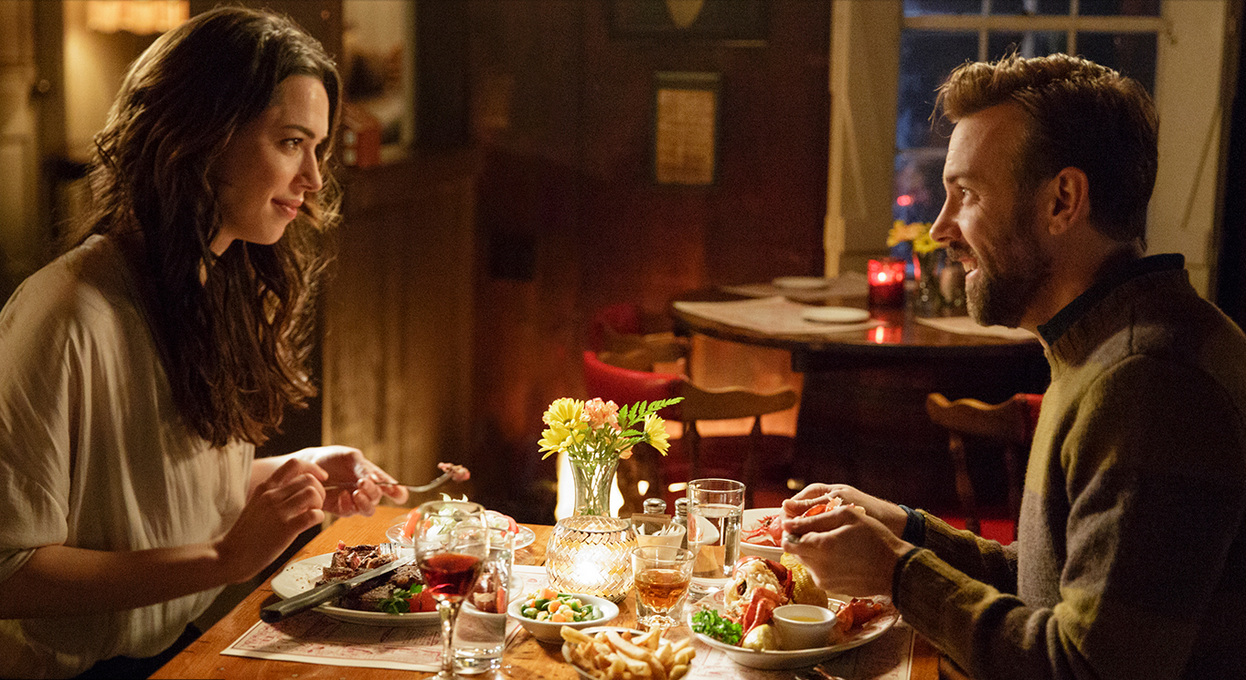By providing your information, you agree to our Terms of Use and our Privacy Policy. We use vendors that may also process your information to help provide our services. This site is protected by reCAPTCHA Enterprise and the Google Privacy Policy and Terms of Service apply.
Meet the 2015 Tribeca Filmmakers #54 : Sean Mewshaw Tackles Small-Town Grief in ‘Tumbledown’

Becca Nadler

What’s your film about in 140 characters or less?
A small town widow starts to overcome her grief by confronting a NY writer who shares her passion for telling her late husband’s story.
Now what’s it REALLY about?
It’s a hopeful story about how one person finds the courage to feel joy again when it seems all but buried in grief. It’s about how exciting and scary and weird and incredible that first tickle of love feels, even when you’ve been crushed in its teeth before. Plus it’s a fond portrait of my wife’s hometown, and what we find funny and endearing about life in Maine.
Tell us briefly about yourself.
Biggest challenge in completing this film?
The challenge that took the longest was overcoming the stigma of the first-time feature director. Everyone was always enamored of Desi’s script, but no matter the short films I’d made with established actors, or my experience on the sets of big feature films, it involved years of persistence, endless carefully calibrated letters, building an intricate lookbook, blazing with confidence in meetings where I was over my head, shooting a fully-produced scene from the film, plus truckloads of luck to convince all the gatekeepers to risk letting me step onto the playing field, then attack the creative challenges.

What do you want the Tribeca audience to take away from your film?
I can’t wait for audiences to discover the performances Rebecca Hall and Jason Sudeikis created in the lead roles. They are so sparkling and vivid and soulful in this film, and I think it’s always exciting to see more deeply into actors you think you already know.
Any films inspire you?
“A Fish Called Wanda.” “The Sweet Hereafter.” “The Limey.” “The Place Beyond the Pines.”
What’s next?
I’m adapting another Maine-based story, Lewis Robinson’s novel “Water Dogs.” It’s a mystery / dark comedy about the secrets brothers keep from each other.
What cameras did you shoot on?
Did you crowdfund?
Did you go to film school? If so, which one?
My parents, bless them, insisted I get a college degree first, and although I always thought I would go to film school afterwards, I never ended up there because when I first moved to LA I was lucky enough to start getting jobs in production on really interesting features. I treated my time on set as school, observing how professional crews did each job, and doing my best to earn access to mentors who inspired me – Boaz Yakin, Martin Scorsese, Michael Ballhaus, and Gary Winick among them.
By providing your information, you agree to our Terms of Use and our Privacy Policy. We use vendors that may also process your information to help provide our services. This site is protected by reCAPTCHA Enterprise and the Google Privacy Policy and Terms of Service apply.















